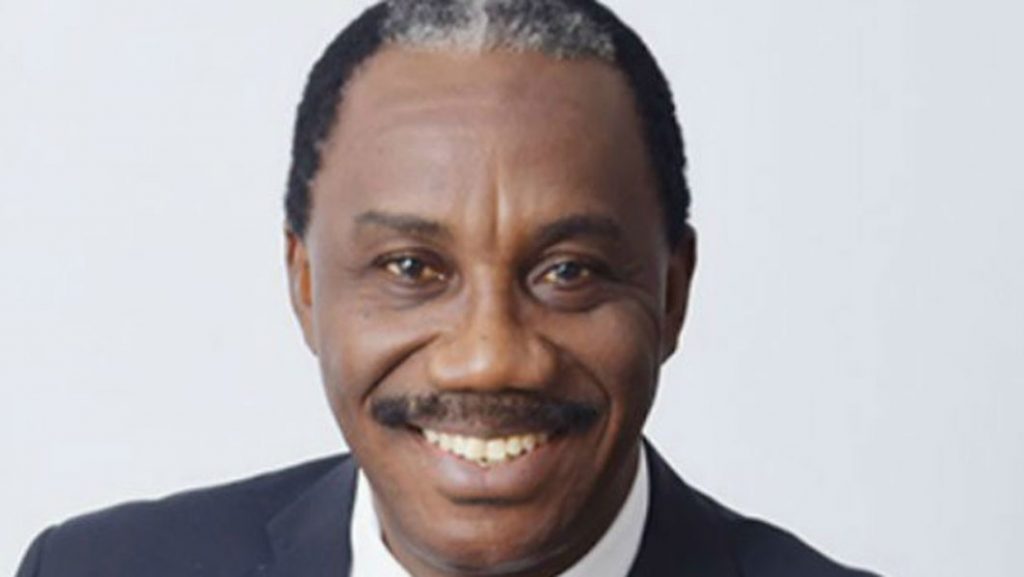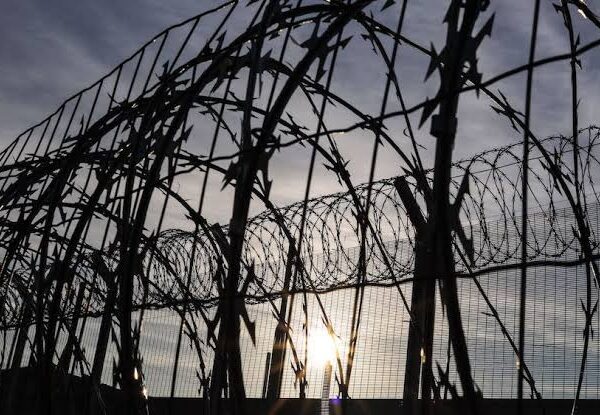
Prof. Ernest Ojukwu (SAN) is former Deputy Director-General of the Nigerian Law School & Head Augustine Nnamani Campus Enugu, and Pioneer Chairman/Founder NBA Eastern Bar Forum 2004-2011. The legal luminary bared his mind on how the Nigerian Bar Association could help raise the standards in the nation’s justice administration. He also offered fascinating insights into how trial delays could be dealt with through the automated court recording project. AMEH EJEKWONYILO reports.
The issue of setting up new courts and appointing more judges has been identified as ways of addressing trial delays. What are your views?
Establishing new courts and appointing more judges will not solve the problem of trial delays in our judicial system. It will also not totally reduce the number of cases that go to the courts. But it may help if we apply other solutions that will be complimentary to it. One major solution that will be complimentary to appointing more judges and increasing the number of courts is to radically encourage Alternative Dispute Resolution (ADR) mechanism to push many more cases out of the courts. That is how every civilized developed nation is moving, towards ADR. That was how we were before the advent of the modern type of court system; we were using our own form of settlement of disputes, and so we didn’t need court. So, that is the way to go. The state, the system and the legal profession as well as everybody should push for a drive to go towards ADR rather than going to litigation.
The other complimentary approach will be to amend our constitution. I have not read in detail the ongoing amendments to the constitution to know how this matter has been tackled, but it will be very important at this stage that any constitutional amendment that does not tackle the process of access to justice in Nigeria will be futile. So, whatever other mechanisms we have put in place to reduce trial delays and decongest our courts will not be as effective until we do some major fundamental constitutional amendments for the judicial process.
For instance, every case has the potential of being appealed up to the Supreme Court; every type of interlocutory application has the potential of going to the Supreme Court. And recently, the Supreme Court has worsened the situation by holding that people had the right of appeal from the National Industrial Court even though there is no clear express provision granting appeal from the court to the Court of Appeal. They have opened that avenue for an additional burden; any matter that goes to the Court of Appeal now has the potential of ending in the Supreme Court. So, the apex court has caused more harm than good by that interpretation.
Now, the way out is to amend our constitution and decide the type of cases that can only be appealable at any stage even from the High Court to the Appeal Court and to the Supreme Court. We have to also decide the powers of these courts to decide not to receive certain appeals. For instance, there are too many interlocutory processes that should not be appealed on; they should come together with the normal appeal.
What about the procedural rule of court that demands counsel to seek leave of court before filing an appeal?
Well, it may seem enough on the face but it’s not. It is also a part of our ability to apply principles that will help in reducing trial delays. The Appellate Courts have shown weakness in allowing all kinds of appeals especially where the other party files no opposition. So we should assist them by out rightly banning some cases from being appealable and at some level.
But lawyers have always kicked against the idea of ADR arguing that it would take away their litigation jobs?
It is a misunderstanding of what the role of a lawyer is. Lawyers who train in ADR mechanism are some of the richest in the country today. We must see service for justice in holistically. The more we create trust in justice delivery the more clients come to us, and the more money we make in reality. Right now the general public distrusts the justice system. Even lawyers do not trust the system. And we are generally paying dearly for it in terms of economic benefits.
What are your thoughts on the ongoing constitutional amendments at the National Assembly, particularly the rejection of the 35 per cent affirmative action for women as well as devolution of powers?
Like I said earlier, I have not read most of the proposed amendments to give you a general overview. But I’m aware that our National Assembly is generally a retrogressive body; they are not radical and some of the policies they have adopted are to protect their own personal and political interests. So, that has affected some of the decisions they took.
Now, the women’s affirmative action that they rejected has a pro and con; how do we fix 35 per cent as a quota, is it a minimum? There is a general believe that women are more in number though our census figure does not show that, but at least they are almost at par. Why don’t you make it 50 per cent? For me, a quota system that is focused on affirmative action for women should actually not be as retrogressive as to ask for 35 per cent. But the most important aspect of helping women is not only by legislation; the major focus will be in the actions we undertake at different levels of our lives.
For example, from primary school to secondary, what kind of relationship do we create between boys and girls, how do we address them at home and at school, at our work places and in our professional activities? All these things affect how women will be represented and participate in our national life.
Recently, the Inspector General of Police argued that State governments are not ripe to have their own police force. In view of the current security crises across the country, don’t you think the IGP is wrong?
I have always favoured state police. The Federal police have not done better; each time people make very important proposals that will help us, people always attack it by saying, ‘the people we are going to propose are corrupt,’ but they are all Nigerians and we know almost everybody is the same. If we know that the people we are proposing to do something are corrupt, is that why we should not propose something that will be good to all? Our job would be to set up a machinery to de-corrupt the system (the people), and not to stop a process that will help the environment. State police and community police is fundamental to creating security for our country. Without state/community police, we would grapple with security problems forever.
I am aware that if we have a police from that same community leaving with you in that community for 30 years, there will be more cooperation, or if he doesn’t behave, he will lose his job very fast, because his brothers and sisters would make him lose his job very fast. But if he behaves professionally, he would hold that job forever, but bringing strangers from across the country who are responsible to one man in Abuja, will not help our security system.
How do we enthrone an automated recording system in our courts?
It is very simple. It’s one of the things that have bogged my mind since from my early days as a young lawyer till now. As a young lawyer of seven years at the Bar, at the NBA conference in 1991 in Owerri I delivered a paper and called for the abolition of recording by judges in long hand. That was 26 years ago. Twenty-six years after, our judges up to the Supreme Court still record proceedings in long hand. It is something that I have never understood why we have to do this in 2017.
The process is simple and uncomplicated. There are many simple options to adopt.
I can’t see how we can progress and fight trial delays, court congestions, corruption, and judge’s overload as long as we continue to allow our judges to continue to record in long hands. I have accused our judiciaries of deliberate refusal or failure at deploying automated court recording, because I see the evidence that they (judges) love the power and control from long hand recording.
I can’t see why out of the 36 states and the Federal Capital Territory, the Federal High Court, the National Industrial Court, we do not have one example of a judiciary that has abolished recording in long hand and successfully adopted automated recording. Why are all of them complicit in this failure yet new legal year upon new legal year; year after year, the Heads of these courts read speeches upon speeches complaining about the burden of justice administration that includes recording of trials in long hands. If you talk to the judges themselves, that is their greatest challenge to their health? I really wonder.
What contribution can the NBA make towards reforms in the judiciary?
The NBA has a lot to do. There are too many things that the judiciary does that affect the entire nation, affects the profession and justice, and that is the key role of the Nigerian Bar Association; to help raise the standard of the administration of justice. One major contribution is to put pressure on the judiciary, and one of the ways to put pressure on the judiciary is to conduct what I call a “Court Monitoring Project”. Create a strong, sustainable, and very active court monitoring project that is not set-up to hunt, but setup to correct and help build. With the result of the Court Monitoring Project, the rest will become easy to implement.
copied from The Authority.Reported by AMEH EJEKWONYILO for The Authority


